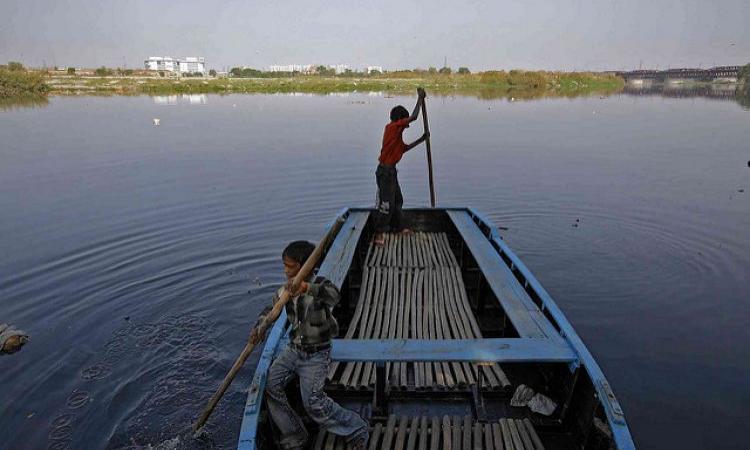
HC orders Haryana government to supply adequate water to Delhi and monitor Yamuna through live Google maps
The Delhi High Court has ordered the Haryana government to ensure that adequate water is provided to Delhi and to monitor the Yamuna river through live Google mapping. The decision has come after the court was informed that there are bunds present at 11 locations in the canals carrying water meant for Delhi and these bunds are severely affecting the water flow in the Yamuna river. Apart from bunds, large-scale mining in the Yamuna and one of its tributaries, the Somb, is causing huge environmental damage to the flora and fauna in and around the river bed. Moreover, the Haryana government is being held for deliberately keeping back the information regarding the details of mining site permits along the Yamuna river.
Area around Asola in Gurugram, Faridabad gets the eco-zone tag
The environment ministry has declared an area of up to one km around the boundary of the Asola Bhatti wildlife sanctuary in Gurugram and Faridabad as an eco-sensitive zone. With this notification, construction or industrial activities have been banned in the sensitive zone. The Haryana government has been ordered to prepare a zonal action plan that includes steps for groundwater management, soil and moisture conservation, and to demarcate existing places of worship, villages and urban settlements within two years. Although experts have lauded the move, they have recommended an eco-tag for the whole Aravalli region.
Take action against those using tube wells illegally: NGT to Delhi authorities
The National Green Tribunal has ordered the Delhi Jal Board (DJB) and the Delhi Pollution Control Committee (DPCC) to take action against those using tube wells illegally to extract groundwater. The NGT has directed authorities to initiate prosecution, apart from recovering compensation, as illegal installation of tube wells is an offence under the Environment (Protection) Act, 1986. Along with this, the tribunal has asked authorities to dismantle and seize equipment to prevent reopening of sealed tube wells and also consider adopting a policy against illegal withdrawal of water.
Environment ministry seeks proposal to declare Greater Noida's wetland a Ramsar site
This World Environment Day, the environment ministry has written to the Uttar Pradesh government to submit a proposal to declare Dhanauri, a large wetland in Greater Noida, a Ramsar site and Sarus sanctuary. Dhanauri wetland, which sees thousands of birds every season, meets at least three of the nine criteria listed under the Ramsar Convention. Once approved, Dhanauri will be the 28th wetland in India to be declared a Ramsar site and the second from Uttar Pradesh. As claimed by an environmentalist Anand Arya, at least 150-200 Sarus cranes and around 50,000 birds from 261 species can be spotted every season at Dhanauri wetland.
Pune civic body to halt all road concretisation works as it affects groundwater recharge
After being informed by experts that concretisation was affecting groundwater recharge, the Pune Municipal Corporation (PMC) has decided to go slow on constructing cement roads. The city authorities have stated that the PMC will soon finalise a policy to stop the rampant concretisation of city streets which had been ongoing due to a number of potholes plaguing the city's roads. To tackle the water crisis this year, PMC initiated the campaign called Jalayukta Shahar that focuses on replenishing the groundwater reserves and it was during one of the campaign meetings that the experts came up with the issue.
This is a roundup of important policy matters from June 5 - 11, 2019. Also, read news this week.